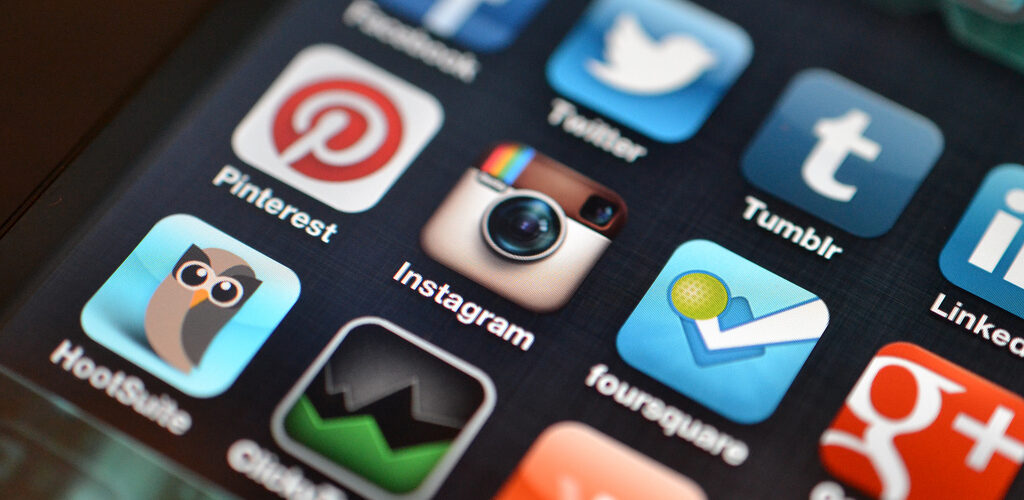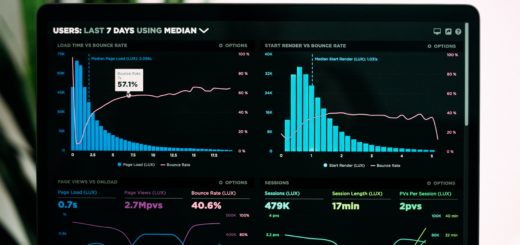How #FOMO may be affecting your mental health

Midnight. My phone chirps a Twitter notification from my bedside table, lighting up my dark bedroom. Yawning, I instinctively reach for it and can’t resist sending a reply. The topic of my late night tweet? How using social media in bed is affecting our sleep and mental health. The next morning I arrive at a psychology conference – tired from lack of sleep – ready to tell others why they should be switching off from social media, especially before bed. Do as I say and not as I do, right?
I really should know better, as my own research looks at how the pressure to be connected 24/7 through social media can be damaging to wellbeing. Despite this, I am clearly suffering from a Fear of Missing Out or FOMO. The chances are that you too have experienced FOMO at one time or another. Ever felt stressed or fidgety when you couldn’t access your social media accounts? How about itching to check your phone when you receive a notification? If this sounds familiar then you are a fellow FOMO-sufferer, like 56% of all social media users 1 And if you’re not affected then you will certainly know someone who is.
The reason that many of us experience this “Fear of Missing Out” is that more and more in today’s digital age, there is social pressure to be constantly connected. Of course, it’s natural that we don’t want to feel left out, but these days trying to keep up with the constant stream of information on social media can be overwhelming. To stay in the loop and make sure we don’t miss out on anything – whether that’s an event or some new content everyone’s talking about – we have to be online continually.
This means that many of us never really ‘switch off’ from social media as we are constantly connected and checking our accounts throughout the day and late into the night. We should be concerned about these social media habits because research now shows that they could be leaving us tired, anxious and depressed.
My last research project looked at how this pressure to be available round the clock impacts on sleep and mental health amongst teenagers, who are particularly susceptible to FOMO 2. Along with my supervisor Dr Heather Cleland Woods, we measured levels of anxiety, depression, self-esteem and sleep quality in over 450 secondary school pupils in Glasgow. The aim of our study was to explore how these aspects of wellbeing were related to the amount of time participants spent using social media during the day and at night, and the emotional connection they felt to social media sites 3.
We found that teens who felt upset or disconnected when they couldn’t access social media accounts were most at risk of experiencing anxiety, depression and low self-esteem. Furthermore, this need to be constantly connected led many participants to use social media into the wee hours of the morning and not get enough sleep. This is a “double whammy” for poor mental health, as we are more likely to feel anxious and depressed if we don’t get the sleep we need.

Using social media in bed can get in the way of a good night’s sleep, leaving us more vulnerable to anxiety and depression.
Image by Japanexperterna.se via Flickr (CC BY-SA 2.0).
While our study involved teenage participants, the FOMO phenomenon affects social media users of all ages. In a study led by Sara Thomée, young adults reported feeling a strong social pressure to be constantly available via their tech 4. The twenty-something year olds experienced stress when they didn’t respond to messages straightaway and made up excuses for their late replies – (Come on, we’ve all done it!). This issue clearly affects all of us, either directly or through someone we know. So how can we apply the research to our own lives?
The good news is that I’m not going to tell you to delete your social media accounts. Would you listen if I did? Me neither. Fortunately, our findings indicate that it’s not just a question of how much we use social media, but how and when we use it. Based on our results, it’s not simply that all people who spend more time on social media will necessarily experience poorer sleep and feel low. Rather, it’s those of us who feel attached to our accounts and who use social media in bed that really need to watch out.
But don’t worry: if, like me, you find yourself itching to check that notification or reaching for your phone at night, here are two simple suggestions for tackling FOMO. Firstly, give yourself a break from social media. Treating yourself to some time offline will let you mentally ‘switch off’ from the constant stream of online information and pressure to be available.
A fun way to take a break from social media is to have a tech-free dinner with friends. In a recent experiment, diners first used their phones at the table before putting them in a box for the rest of the meal. Once the initial distress at being unable to share the experience on social media had passed, participants enjoyed their evening more and made deeper connections with others without the distracting presence of mobile phones 5. To give yourself some time off from social media, why not try this experiment with your friends? Make it interesting by introducing forfeits for those who “crack” and check their phones!
My second ‘simple’ suggestion? You guessed it – no tweeting in bed! The same goes for liking, following, pinning, sharing… Turning social media notifications off at night will mean you can get a good night’s sleep without unwanted interruptions, and switching off from social media before you go to bed means you’ll fall asleep quicker and sleep for longer. Getting enough sleep is crucial for mental health, as it can help protect against anxiety and depression and as. As if that wasn’t enough, some research suggests that we also make better decisions, learn and remember more new information and even catch less colds when we are well rested 6.
It’s clear that FOMO may be taking a toll on our mental wellbeing, as our need to be constantly connected day and night can contribute to stress and low mood for many social media users. Furthermore, struggling to switch off at bedtime means that many of us aren’t getting the sleep we require, leaving us not only tired but also more vulnerable to anxiety and depression. Luckily, for those of us who struggle to resist checking alerts and replying to messages, it’s clear what we can do to help: take some time away from social media and definitely log out before bed. Simple, right? I think I might tweet about that in bed tonight…
This article was specialist edited by Jessica McLaren and copy edited by Kirsty McLean.
References
- This article gives more details on the MyLife.com survey that found 56% of people worry about missing out on events and updates when they are away from social media
- In this video, nine teenagers talk about their experiences of FOMO when they tried to give up social media for a week: http://www.bbc.co.uk/schoolreport/31942696
- For a brief summary of our study, see this BBC article: http://www.bbc.co.uk/news/education-34220964
- Sara Thomée’s key findings on young adults’ relationship with their technology are summarised in this news article: http://www.dailymail.co.uk/sciencetech/article-2175230/Too-time-online-lead-stress-sleeping-disorders-depression.html
- Psychologist Stephanie Davies talks about the benefits of taking a break from our phones in this article on the phone-free dining experiment: http://www.bighospitality.co.uk/Trends-Reports/Mobile-phones-cause-emotional-stress-at-dinner-table
- Harvard Medical School’s ‘Healthy Sleep’ website has lots of great information and videos on why sleep is important for staying healthy, making safe judgements, learning and memory: http://healthysleep.med.harvard.edu/healthy/matters










